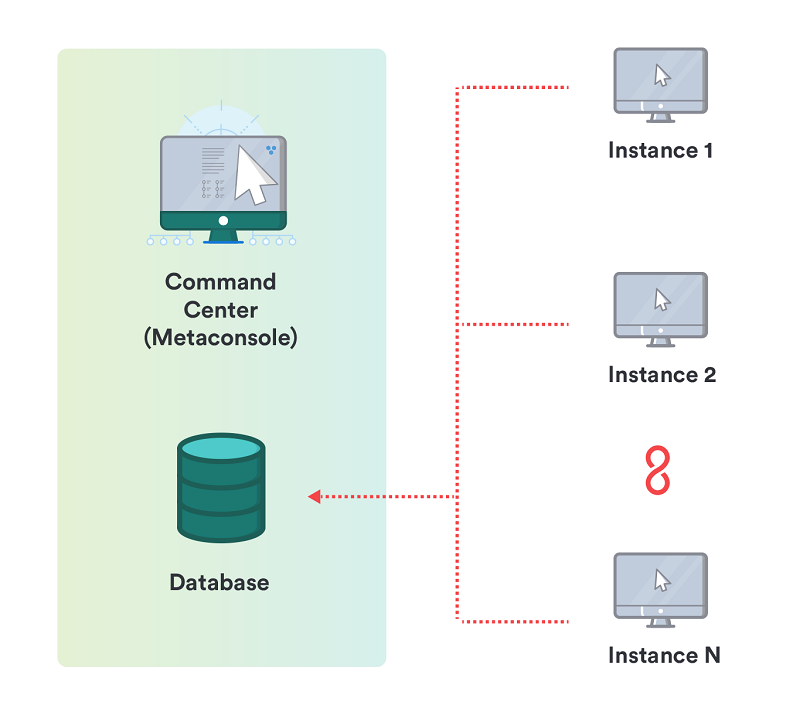Architecture and synchronization
Architecture
The architecture of a Command Center (Metaconsole) consists of:
- A central node, the Command Center, with its own server.
- As many server nodes as needed, the Instances.
Instances are normal installations of Pandora FMS. They consist of a Web console as a presentation layer (front end) and a server as a data access layer (back end) that processes incoming data, performs remote checks, etc.
From Pandora FMS version 756, the synchronization system was redesigned from scratch, since the changes will be replicated to the nodes automatically without the need of the manual synchronization that was done before.
When upgrading, all already centralized Command Center environments will be forced to go through the new Merging tool section located under Centralised management in order to be properly centralized again.
Synchronization
Where is the data?
Some data are in the Instances, others in the Command Center and others in both parts, needing to be synchronized for their correct operation.
In the Instances:
- The agents.
- The modules.
- Alerts.
- Policies.
In the Command Center:
- Command Center configuration.
- Components.
- Reports and report templates.
- Network maps.
- Visual maps.
- NetFlow filters.
In both:
- Users and profiles.
- The groups.
- Templates, actions and alert commands.
- The tags.
- Categories.
How is the information obtained and modified?
The Command Center obtains and modifies Instance information in two different ways:
- Active: Access to the database or API of the Instances remotely from the Command Center (this is the case of agents, modules, alerts, etc.).
- Passive: Data replication from the Instances to the Command Center database (this is the case of events).


 Home
Home













